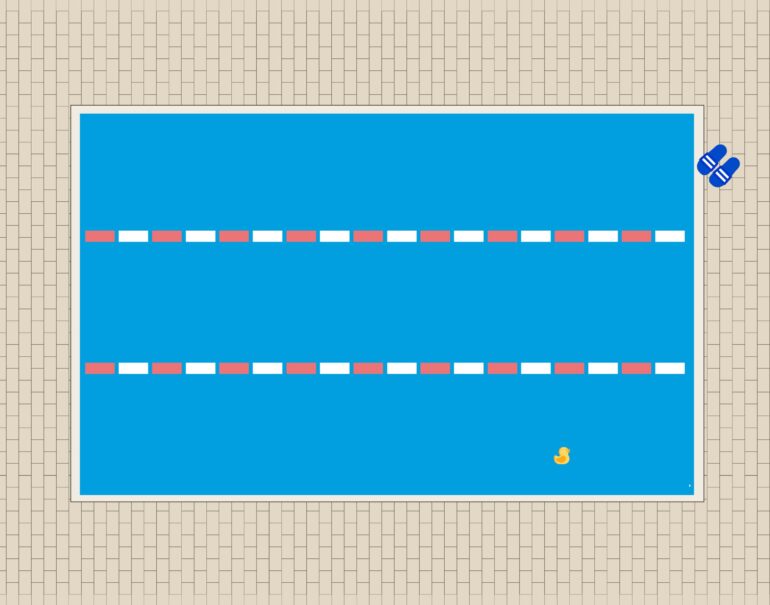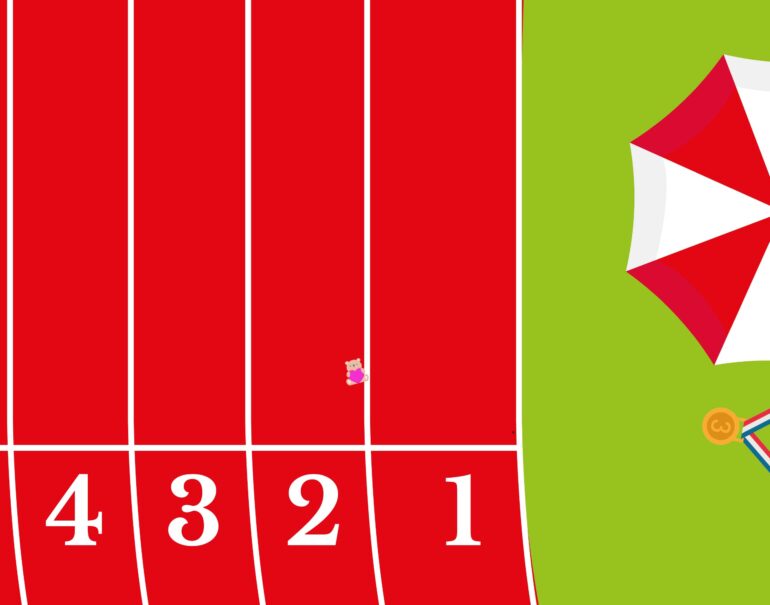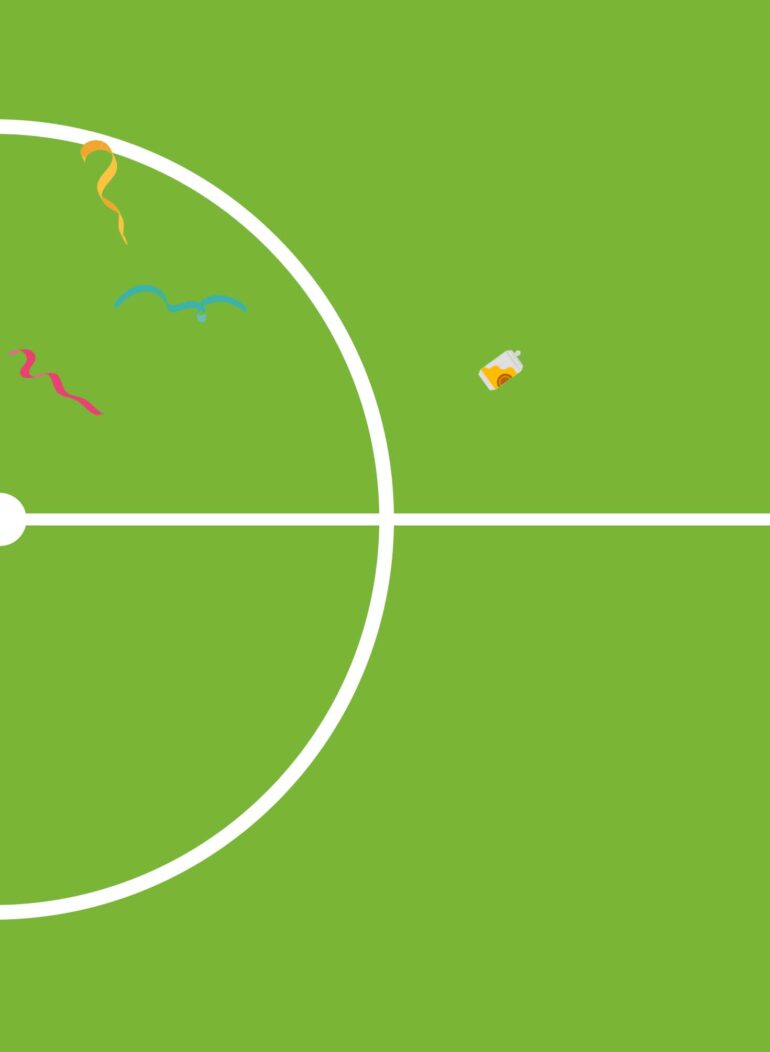Sport moves your body, your mind and society. Although a lot of institutions are involved in sport, many projects would simply not be possible without philanthropic engagement.

‘Sport has the power to integrate and to stimulate,’ says Martin Wittwer, National Director of the Stiftung Laureus Schweiz [Laureus foundation, Switzerland]. Since 2006, the Stiftung Laureus has been providing support to children and young people here in Switzerland through social sports programmes. It is one of eight national foundations worldwide that belong to the global Sport For Good foundation. The national organisations discuss current projects in regular conference calls. However, the work itself is carried out differently in every country. In Switzerland, more than 20,000 children and young people benefit every year. ‘Sporting activities play an important role in healthy development,’ says Martin Wittwer, citing its positive effects not only on physical development, but also on mental and social maturity. Sport is the central element of the Laureus programme. And it is highly effective. ‘The children and young people learn through the power of sport to believe in themselves, to follow their personal goals, overcome setbacks and take control of their own lives,’ he says.
Enthusiasm and a zest for life
The positive impact of sport on society is something Matthias Kuratli agrees on. Kuratli is Managing Director of the Stiftung Freude herrscht [Joy Rules foundation]. He quotes his foundation’s President, former Federal Councillor Adolf Ogi: ‘Sport is the best school for life.’ You learn to win without getting above yourself. And you learn to cope with defeat. ‘It is especially important for children to learn that winning and losing are part of life,’ says Kuratli. Just reading the name ‘Freude herrscht’ gives you a sense of the enthusiasm the foundation has for its work. Yet the reason for its existence is a sad one. Adolf Ogi wants to use it to honour his son, who died at the age of 35 from a rare form of cancer. Mathias A. Ogi was an enthusiastic sportsman. He was active in the Stadtturnverein Bern [Bern gymnastics club] and was a keen middle-distance runner. ‘The foundation is intended to keep the memory of Mathias A. Ogi alive,’ says the Managing Director. Long may his virtues live: his enthusiasm for exercise, his zest for life. These are the things that the Stiftung Freude herrscht wants to pass on to the next generation. ‘We want to get children moving,’ says Matthias Kuratli. And that is what the foundation has been doing since 2010. In this time, it has supported over 870 projects with a variety of different needs. It often doesn’t take huge sums of money to give children unforgettable sporting experiences. ‘We get requests from school classes who can’t go to ski camp, or from running groups who need new T‑shirts,’ Kuratli recounts. The Awards Committee assesses whether the enquiry meets the purpose of the foundation, and allocates the funds.

Perpetually motivated to move
Since its inception in 2005, fit4future has established itself as a brand for the promotion of sport and health for school-aged children. In 2004, Hans-Dieter Cleven set up a foundation under his own name and launched this programme. The founder is a former chief financial officer and supervisory board member at the wholesaler Metro AG. Upon his retirement at the age of 60, he wanted to give something back to Swiss society – directly and without any unnecessary ‘detours’. At the beginning of 2022, he decided to let his name fade into the background. The foundation took on the title of what had already become the best-established health programme in schools, and became known as the fit4future foundation. It is now continuing its success story. Among other things, the foundation now organises 400 fit4future events a year. For the schools themselves, the programme is free. ‘The fact that one in three Swiss primary schools participates in fit4future shows the great demand we get from schools,’ says Managing Director Pascale Vögeli. The foundation offers them a broad range of activities relating to exercise, nutrition and mental health. The focus is on prevention and the promotion of health in childhood. That was the founder’s intention. ‘Hans-Dieter Cleven was convinced that regular sport could do a great deal of good. It improves our health, helps with our mental well-being in a really fun way, and makes an important contribution to integration,’ she says. ‘A child’s physiological and motor development are stimulated and boosted when their muscles are working.’ But it is not just physical development that the foundation aims to promote. Pascale Vögeli explains: ‘Exercise and sport promote cognitive and emotional development; children discover the world through their senses and through movement.’ Ultimately, successful experiences with exercise should also strengthen a child’s self-confidence. As well as working in schools, the fit4future foundation is also active in the leisure sector. It offers multi-sports camps in collaboration with around 20 sports associations and 60 clubs. ‘There is a lot of demand,’ she says, and points out that the urge to move around is still very much alive in children. ‘Even though children consume around two hours of electronic media daily, when asked about their favourite thing to do in their spare time, 95% of children replied “playing outside” and 86% replied “playing sports”.’ So we can conclude that nobody needs to motivate children to exercise. They’re motivated already.bei Kindern täglich rund zwei Stunden beträgt, werden von 95 bzw. 86 Prozent der Kinder «draussen spielen» und «Sport machen» als liebste Freizeitbeschäftigungen genannt.» Deshalb: Kinder im Allgemeinen muss man nicht für Bewegung begeistern, sie sind es.
Old and young
Andrea Lang knows all about children’s natural urge to move. As the Co-Managing Director of the Stiftung Hopp-la [the ‘Oops-a-daisy’ foundation], this is an important lever for her work, since Hopp-la works across the generations and uses of the power of sport to bring people together. Its range of activities are targeted at both children and the older generation. Because, in spite of the decades-wide age gap, they have an astonishing amount in common. ‘It is universally acknowledged that muscle strength and balance go up and then down again during one’s lifetime,’ says Andrea Lang. ‘So children have not yet reached their full potential, while older people’s performance is declining due to the biological ageing process.’ This means that the two generations have a comparable level of skill when it comes to movement, and it’s why Hopp-la’s offering works. Especially because the two groups enrich each other. Children bring along their urge to move their bodies. ‘Older people find themselves infected with the children’s joy in movement and their cheerfulness, and outdo themselves,’ says Lang. This gives rise to an emotional bond. Even if the two groups have different motivations for getting involved in the activity and have different needs, the programmes work because a dynamic arises from the generations encountering each other. The sessions are organised to encourage them to work together. ‘When a child climbs onto a piece of play equipment, the grandparent quickly realises that the child needs help to solve the task,’ says Lang. This triggers exactly the types of movement that achieve the health effects that the programme sets out to achieve. Young and old spur each other on. An example of how this works is the way the giant wire loop game at the Kappeli multi-generational playground in Buchs motivates people to get moving. ‘This is a showcase project for us at the foundation,’ says Lang. The loop game appeals to both generations. The child and the older person work together to guide a metal ring through a loopy metal maze while balancing on logs, laid on their sides. This helps the children hone their concentration skills. As for the adults, it trains their core stability and balance. However, the ‘showcase’ status of the multi-generational playground in Buchs is not primarily due to its infrastructure – it is more to do with how it is run. A group from a local company actively maintains the playground, and so its long-term prospects are assured. Hopp-la is not only active in the playground, though. Social exercise sessions also take place in care homes and other facilities for the elderly. Children from daycare centres and nursery schools come and spend regular exercise sessions with the older generation. In all these projects, two components are at the fore: bonding between generations and the health benefits of exercise. ‘That is actually also the unique thing about the Hopp-la approach – combining these two aspects of exercise, with the benefits it brings to physical and mental health during the course of life, and the social experience of creating bonds between generations,’ says Lang. ‘The core of the approach is encouraging people to exercise in a sociable way.’

The Confederation and philanthropy
The bonds that can be created, the integration, is one of sport’s strengths. It can be a key ingredient in the glue that holds society together. It is good for health. It is an economic factor. It plays a variety of roles. It is important in innumerable ways. For these reasons, there are many organisations and a range of different institutions involved in sport. First and foremost: the state. ‘The Swiss Confederation promotes sport, particularly sports training,’ reads Article 68 of the Federal Constitution. Sports are taught in schools. And its biggest sports promotion programme, ‘Jugend und Sport’ [Youth and Sport] celebrates its 50th anniversary this year. It offers 80,000 courses and camps for 85 types of sport per year. Over 630,000 children and young people take part. Along with what the state offers, many people also take it upon themselves to get involved as volunteers. According to a study by the Federal Office of Sport, there are 19,000 sports clubs with two million active members across Switzerland. And yet, in many areas, it is only thanks to numerous instances of philanthropic engagement that grassroots or niche sports can happen at all. One foundation whose name really says it all is the Stiftung Breitensport [Grassroots Sports foundation] in Lucerne. Its Managing Director, Hans Peter Lüthi, says: ‘We want to support grassroots sport to help combat low exercise levels and the problem of obesity.’ Children and young people, but adults too – the foundation supports projects for all age groups. And they often have a social aspect too. For instance, in the canton of Uri, the foundation helped the Midnight Basketball project achieve a breakthrough. ‘The concept had already worked well in other cantons, such as Aargau and Zurich,’ Lüthi tells us. But in Uri it met with scepticism. So he personally worked on making it happen. The Midnight Basketball project opens up gym halls in the evenings. The idea is to motivate young people to get active on a Saturday night. The foundation helped finance it in Uri for the first three years, and in the meantime, the project has become established. Though funding is normally time-limited, it can go beyond three years, depending on the project. ‘We must have supported Lucerne’s ‘Seeüberquerung’ [an annual swim across Lake Lucerne] seven times already,’ says Lüthi. This is an established commitment. And he sees it as important: ‘The Seeüberquerung is a worthwhile project. Swimming lessons and training days are all part of it.’
Unexpected support
Hans Peter Lüthi’s involvement in sport has to do with his own history: in 1972, he took part in the coxed four rowing event at the Olympic Games. And he has passed down his enthusiasm for sport to his family, with his daughter competing at the Olympics in Sydney and in Athens. Now, at over 70, he sometimes considers slowing down. ‘But then our 94-year-old patron and trustee, Arthur Waser, tells me I’m still young,’ he says. The patron, who is well known in the region, mainly supports cultural projects. Fifteen years ago, he was persuaded by sports-mad Lucerners to found the Stiftung Breitensport and support it with a CHF 500,000 donation. ‘We are a limited term trust,’ says Lüthi. Arthur Waser and the grant-making foundation Asuera ensure that funds keep flowing for the Stiftung Breitensport. The Stiftung Asuera, located in Hurden, is involved in two areas: ‘Modern Technologies’ and ‘Exercise & Sport’. Sometimes Asuera and Stiftung Breitensport also help each other out. ‘And it sometimes happens that we might pass a project on to them because we can’t take it on,’ he says. Still, he would be pleased if other grant-making foundations would support them, as he sees potential to support other projects. ‘This year in particular, we have been getting an amazing number of enquiries due to coronavirus,’ says Lüthi. In a normal year, the Board of Trustees deals with 50 enquiries. ‘This year, I’d gone through 40 enquiries already by the middle of April,’ he says. The foundation gives out a total of CHF 125,000 to around 25 projects every year. This benefits clubs in the six cantons in Central Switzerland. Although, Hans Peter Lüthi does notice clear differences between the cantons. Hardly any enquiries reach him from the canton of Zug or the communities surrounding Lake Zurich. There is presumably less need for financial support in those areas, he concludes. In order to receive the foundation’s support, a project already has to have 50% of its funding, and the application has to come from a society or club. As a general rule, the foundation finances a project for up to three years. The sums involved are usually around the CHF 2,000 mark, often less. ‘“Free Snow Sattel” is a typical project,’ Lüthi says. This is a project that he is passionate about. Every child that attends school in the municipality of Sattel can ski for free, all winter long. ‘That is outstanding,’ he enthuses. However, the Stiftung Breitensport also seizes the initiative itself. Once a year, a club benefits – completely out of the blue. Because the foundation itself goes looking for a club that is worthy of support. ‘Every year we go to a region in which we haven’t been active yet,’ says Lüthi. Then, he searches for potential clubs. And, as with all enquiries, it is the Board of Trustees that decides which club should receive their support. ‘Sit down,’ he says, when he contacts the president of the club to tell them that they can look forward to a donation of CHF 5,000.

Sending out a call via social media
The Stiftung Freude herrscht also carries out its own projects. With two active weekends in Kandersteg and Zermatt, as well as ski days in Hasliberg, the foundation takes initiative itself. ‘We invite children who would not otherwise have this chance,’ says Matthias Kuratli. ‘We invite either individual children or entire classes of kids.’ This year, the foundation sent out an invitation to the ski day in Hasliberg via social media. He explains the idea: ‘Because a lot of skiing events were cancelled due to coronavirus, we wanted to offer a little consolation.’ Demand was high. When selecting classes of schoolchildren, the foundation kept in mind their principle of promoting integration. In the end, classes from various parts of the country were able to enjoy the ski day together. Children from different schools met, went skiing together and made friends. ‘The call via social media worked really well,’ says Kuratli. And those who were not chosen this year can still hold out hope. They were not simply rejected; instead, their application was noted and they will get another chance next year. The foundation also relies on charity events to allow the next projects to take place. For instance, it is organising two golf tournaments. ‘Ski For Kids is also purely a charity project,’ Kuratli points out. At these events, sports, business and cultural personalities put on their skis. To start with, sponsors pay an entry fee to spend the day with someone like World Champion Mike von Grünigen, and go skiing with them. Five people can ski with each celebrity. In addition, the foundation looks for a company like Swisscom or BKW to sponsor each of the 14 teams for every kilometre they ski. When searching for companies, the foundation has two big points in its favour. ‘We get children moving,’ says Kuratli, ‘And we benefit from the charisma of former Federal Councillor Adolf Ogi. His name gives us credibility,’ he says. ‘He is behind us and people trust him.’ Also, as the former Director of the Swiss Skiing Association, he has a large network at his disposal. Among Ogi’s acquaintance are many people willing to give something back. This is how Olympic ski cross gold medallist Ryan Regez, and entrepreneur and musician Marc Trauffer were persuaded to get involved in aid of children. The foundation also organised the ‘Blausee-Schwimmen’ charity event, where participants pay to swim across the Blausee mountain lake. Despite these impactful occasions, charity events generate only around 15% of the foundation’s budget. ‘The rest comes from contributions from donors,’ says Kuratli. ‘Some may be major donors, who donate several thousand francs. But we have also been known to receive twenty-franc notes in an envelope.’ And finally, Adolf Ogi himself lends his support. ‘When our president is engaged as a speaker, he doesn’t demand a fee. Instead, he persuades the organisers to make a donation to the foundation.’
Charity Night
The Laureus Stiftung Charity Night is always a great experience. ‘But we also organise a Sport For Good Weekend and other fundraising events,’ says Martin Wittwer. ‘Of course, fundraising is at the core of all these events.’ But it’s more than that. They want the general public and public institutions to learn about their work. Donors can attend the social sports programmes and share experiences with ambassadors, who also act as important role models for the children and young people. ‘They encourage them to take regular exercise, but also to believe in their dreams, set themselves challenges and grow from them,’ he says. In this way, they can experience first-hand what sport can achieve: ‘Sport conveys values such as team spirit, respect, discipline and fair play – values that also help kids and young people in their everyday lives, at school and during training for their future careers, and that promote equal opportunity,’ says Martin Wittwer. Partnerships help in carrying out these projects, such as those with IWC and Mercedes Benz, who are international partners and founders of the global foundation. In Switzerland, Groupe Mutuel and MSS Holding AG are also national partners of Laureus. For effective collaboration, Laureus also goes into partnership with other foundations. In its role as a conventional grant-making foundation, it also helps support the fit4future sports camps. Martin Wittwer says: ‘Our role in this includes providing financial support, help with devising the programme, involving our ambassadors and improving visibility at our events.’ Together, both foundations encourage children and young people to exercise regularly, and both ensure that access to their offerings is as easy as possible. The new partnership is already working very well. ‘Laureus mainly focuses on the promotion of health and integration, which perfectly aligns with our own priorities,’ says Pascale Vögeli. ‘On the one hand, Laureus is a valuable sponsor for us. On the other hand, our multi-sports camps offer a high-quality platform to the Laureus ambassadors and athletes. The fit4future foundation also maintains other partnerships, some over many years. Quality is always at the heart of these relationships, which is the only way they can last for the long haul. Transparency, trust and common ground are important here, especially when it comes to projects relating to schools. ‘When partnering with companies to work with schools, it is important to point out the possibilities and the no-go areas from the very start,’ says Vögeli. ‘For instance, product placement in schools is an absolute no-go. But the schools know us and they know that we stick to ethical principles like these.’
Grown quickly
The Stiftung Hopp-la has grown quickly; it has had to, to keep up with demand. Nevertheless, the foundation wants to gradually bow out of its active participation in operations and concentrate more on using its knowledge in an advisory capacity, to give others the skills they need. ‘As a national centre of excellence, we contribute towards spreading and establishing the promotion of exercise and health in a way that brings generations together right across Switzerland,’ says Andrea Lang. Hopp-la raises awareness among stakeholders in civil society, administration and politics; it empowers and advises them, and provides support for networking. Creating a network for intergenerational social exercise initiatives is the X factor that will help them reach the general public and increase awareness of the topic. However, various organisations, such as Pro Senectute, are themselves the experts for the target groups. ‘This makes it possible to embed in local structures the approach of promoting exercise groups that combine different generations. This is central to getting them established and ensuring they last,’ says Lang. In pulling back to become more of an advisory service, the foundation is returning to its roots. It began with an academic study, the master’s thesis of Co-Managing Director Debora Junker-Wick. She felt the need to continue her work in practice. This resulted in the establishment of the foundation in 2014, building on the work of Lukas Zahner. Zahner, now Emeritus Professor of Training and Exercise Sciences at the Department of Sport, Exercise and Health at the University of Basel, is an influential figure in exercise research. ‘One of the topics he focused on was promoting exercise among seniors and children,’ says Lang. Preventing falls in older people was a particular interest of his, along with the increasing inactivity in young and old and the resulting issue of falls, which costs millions of francs a year. Relationships between generations, changes in people’s circumstances and the use of open spaces were immediate challenges affecting social and health policies. This was the backdrop for the establishment of the Hopp-la foundation. It was Lukas Zahner who initiated the idea of the foundation, and he’s still on its Board of Trustees. Because the Hopp-la project began at the University of Basel’s Department of Sport, Exercise and Health, it has followed an evidence-based approach from the very beginning. ‘The story of its origins means that our focus over the past few years has always been firmly grounded in the science of training and exercise, and we have been able to use a host of scientific findings to shape the activities Hopp-la offers,’ says Andrea Lang.


